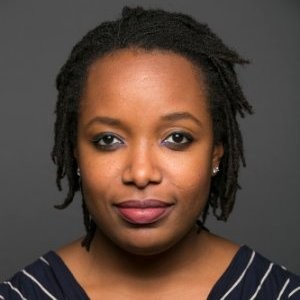… as the times call for extra focus on leadership
Marisa Hall sees recent world events as they impact on investors as well as much of society as a two-act play. The first act is where the action is – all of it bad news – and the second act is where all players come together to fix the problem.
Hall, the co-head of the Willis Towers Watson-founded independent investment think tank Thinking Ahead Institute (TAI), alongside Tim Hodgson, says the past year started promisingly, off the back of a Davos conference for world leaders but quickly deteriorated because of the major fires in Australia, then the US and ongoing in the Amazon.
“The world watched in absolute horror at Australia’s fires,” she told a Conexus Institute webinar last week (October 14). “They brought home the impact of climate change. Then in March we had the impact of the Coronavirus as it was declared a ‘pandemic’. Then in May we saw the unlawful killing of George Floyd, which brought home the level of social injustice and inequality… And all this against a crazy macro-economic backdrop, which includes zero interest rates and challenges to market fundamentals such as mean reversion.”
Although this may not be a Broadway play, the second act spells out what needs to be done to offer a happy ending. “This calls for leadership and strong cultures in organisations, which should be fit to handle the challenges… We’ve zoomed into the person at the centre of the conversation, then out to the organisation and then out to the world,” she said.
The TAI has 40 members around the world among the largest asset owners and managers, with a total of about US$2 trillion under management. Among the super fund members are several from Australia, including LGIA Super and NSW T-Corp. The not-for-profit tends to research big long-term issues (including short-termism) facing boards and management of fiduciary investors and their fund managers.
A big idea explored in particular by Roger Urwin, a key driver in the development and work of TAI and the Willis Towers Watson-affiliated Thinking Ahead Group, out of which it was spun, is the notion of pension funds as ‘Universal Owners’. This was first aired in a paper he wrote in 2011.
His definition is: “Universal owners are asset owners who recognise that through their portfolios they own a slice of the whole economy and the market. They adapt their actions to enhance the return prospects of their portfolios, and hence the prospects for the whole economy and the market as well. This approach is a logical but ambitious interpretation of investing sustainably. Universal owners focus their actions particularly on active ownership practices and active investment strategies that integrate environmental, social, and governance considerations…”
Marissa Hall said that each of the E, S and G in the sustainability prism were interconnected. Looking at events through an ESG lens, there was economic disaggregation, a societal schism and climate change – all leading to E, S, and G being very important. “The most recent sad article is that the Amazon rainforest is now at a tipping point of becoming grassland through a mix of climate and logging… Big pension funds have to do more for society, individuals have to be brave… For investors, ESG can also be a source of alpha, as we saw with the latest NZ Super report. (As previously reported, the sovereign wealth fund early this month its program to cut down carbon emissions among investee companies had added 60bps to returns).”
David Bell, the executive director of the Conexus Institute, said the interconnectedness of the elements of ESG made for a complex problem, given you could not view them in isolation. He asked what the TAI’s view was on the role of capital as well as government and consumers in addressing the issues.
Hall said: “The investment industry needs to work alongside government and the corporate sector to make a difference. The investment industry is also part of the problem. We estimate that the investment industry owns about 25 per cent of the world’s greenhouse gas emissions. What is the industry’s fair share of dealing with the climate problem?
“If we’re trying to solve the problem we need to invest. How do we link our ownership of part of the problem? How do we link it to the solutions? It’s not a question of whether to invest because the industry should own up to being a part of the problem.”
She said the solution required moving to a better culture, which was part of improving an organisation’s effectiveness. “We should ensure that there is a defined culture, a shared language and improved narrative,” she said. “We need more detail on how to deal with all aspects of culture.”
– G.B.











